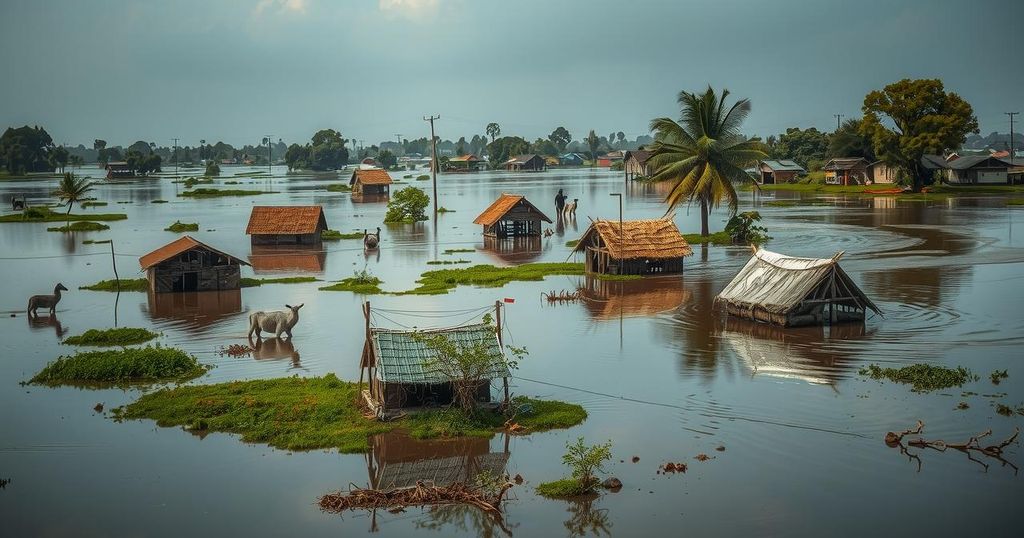Flooding in South Sudan has affected more than one million people, displacing approximately 271,000 individuals. The UN predicts that up to 3.3 million people could be impacted by December, while 15 key supply routes have become impassable, exacerbating food security concerns in the region.
Severe flooding, triggered by heavy rainfall in South Sudan, has impacted over one million individuals. As reported by the United Nations Office for the Coordination of Humanitarian Affairs (OCHA) in Juba, the capital city, the flooding has necessitated the displacement of approximately 271,000 people across 42 of the nation’s 78 counties. Currently, Northern Bahr el Ghazal and Unity states account for 40 percent of those affected. Furthermore, OCHA forecasts that these extraordinary floods could impact an estimated 3.3 million individuals between September and December. The flooding has rendered 15 crucial supply routes inaccessible, thereby hindering physical access to affected regions. The ongoing crisis poses an alarming challenge, as South Sudan is already regarded as one of the 18 hunger hotspots globally, with deteriorating food security, according to United Nations assessments.
South Sudan has recently endured unprecedented flooding due to excessive rainfall, exacerbating an already critical humanitarian situation in the country. The region has faced numerous challenges, including food insecurity and the displacement of large populations. The current environmental crisis, highlighted by the UN, further complicates efforts to provide aid and relief to those in need. The escalating forecast of flooding and its potential to affect millions underscores the urgency for international assistance and coordinated efforts to address the severe humanitarian impacts.
In summary, the recent flooding in South Sudan has severely affected over one million people, displacing many and hindering access to essential supplies. With forecasts predicting further impacts and a worsening food security situation, the crisis calls for immediate attention and unified responses from humanitarian agencies and governments alike to support the affected populations.
Original Source: www.thehansindia.com






